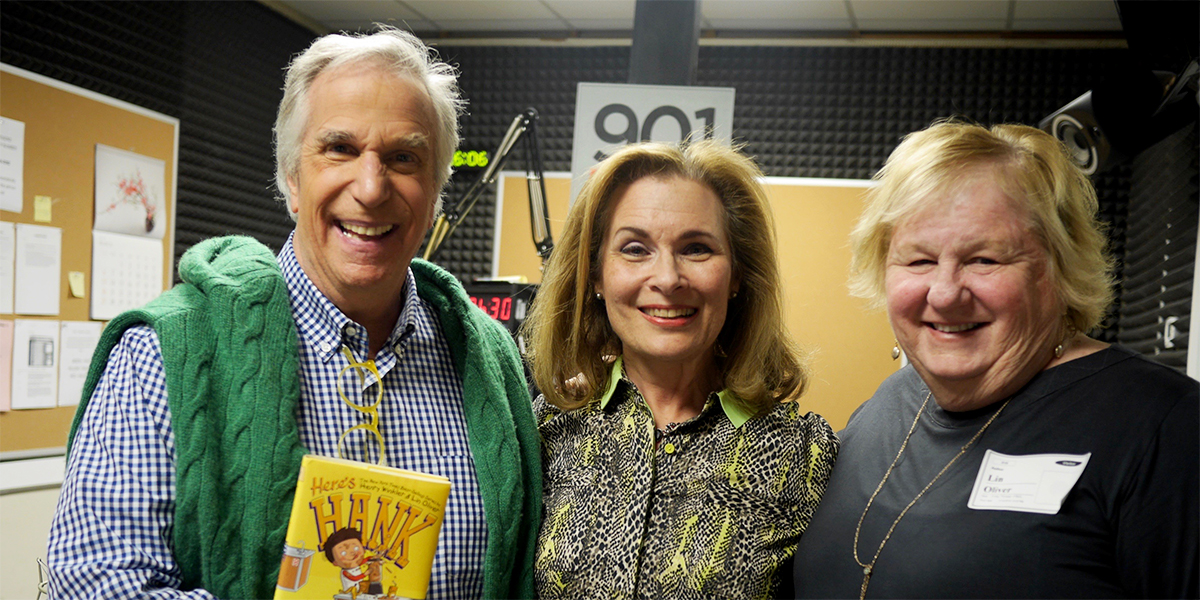Henry Winkler Uses Silly Stories To Foster Love Of Reading

This story is part of WABE and American Graduate’s Advancing Atlanta: Education series. For more stories, click here.
From his early and iconic role as “The Fonz” on “Happy Days” to his late-career peaks on shows like “Arrested Development” and “Children’s Hospital,” Henry Winkler has been making people laugh with his quick wit. Growing up, however, Winkler found school anything but funny.
As a high schooler in New York City, he took the same geometry course over and over, including summer semesters. When he passed with a D-, Winkler was relieved.
Speaking with Lois Reitzes on “City Lights,” Winkler said that school was “miserable” and that the experience of even walking in the classroom door “was almost as if I broke out in hives.” But he never lost sight of his dream of acting, and humor helped him cover his mistakes along the way.
It was not until Winkler was 31 years old and already famous for playing “The Fonz” that he was diagnosed with dyslexia. That year, Winkler read his first book. From his school days through his adulthood, Winkler has learned that “we have to start teaching children how they learn, not what we think they should learn.”
Now, with co-author Lin Oliver, who was already a successful children’s book author in her own right, Winkler is doing what once seemed impossible: writing books. And these books are geared towards kids with dyslexia, though all readers of any age enjoy them.
The latest title in their “Here’s Hank” series is “You Can’t Drink a Meatball Through a Straw.” The series’ titles are deliberately silly and the stories are seriously funny. As a child, humor was Winkler’s coping mechanism. He built his career on his sense of humor. Now, Winkler said, “the gateway to beginning readers … for getting reluctant readers to enjoy reading … is through humor.”
And kids love reading about the misadventures of Hank Zipzer. One third-grade student says it all: “Most authors don’t think about writing about dyslexic people. It makes dyslexic kids feel good that people actually know about us.”
This story is part of American Graduate, Let’s Make It Happen, a public media initiative made possible by the Corporation for Public Broadcasting.
9(MDAxODM0MDY4MDEyMTY4NDA3MzI3YjkzMw004))








